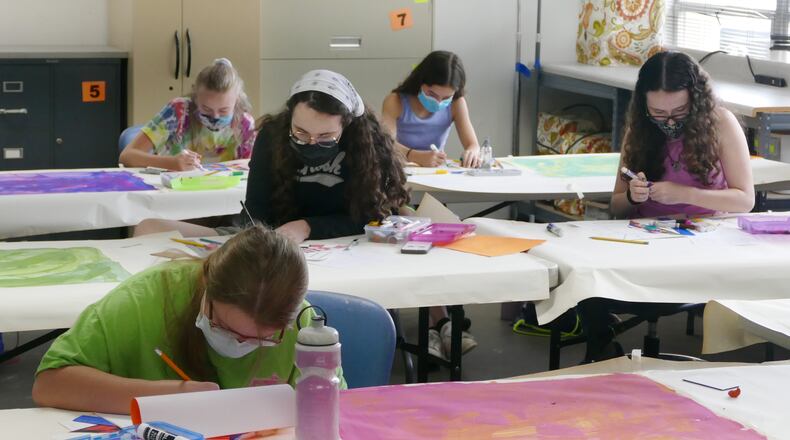A Dunwoody art school is proposing a $2.3 million expansion project to provide enough classrooms to meet resurging demand from amateur and aspiring artists.
The Spruill Center of the Arts is asking Dunwoody to pitch in $1 million to assist with the project, which would add seven new classrooms. City leaders gave the art school its blessing this week to expand its kiln room, which will be financed by the Spruill Center, but the mayor and council are still working to figure out the funding details for the larger expansion proposal.
“One million dollars is not pocket change,” Councilman Tom Lambert said at a Feb. 14 Dunwoody Public Facilities Authority meeting. “...so obviously before any decision is made, we’d need to specifically source that funding, where it’s coming from.”
The authority, which consists of the mayor and councilmembers, will reconvene with Alan Mothner, the Spruill Center’s CEO, after discussing options at their council retreat later in March. Mothner said his nonprofit is financially stable enough at this point to contribute $1.3 million to the expansion, which he said is vital given the pandemic’s effects.
“We’ve seen a greater and greater focus on the arts with public art and with art activations and cultural activations throughout the city, especially post-COVID,” he told The Atlanta Journal-Constitution on Wednesday. “And we want to be at the forefront of that.”
The Spruill Center predates Dunwoody’s founding as a city. Founded in 1975, the school for adults and children provides classes varying from ceramics to jewelry to painting to photography.
The city owns the Spruill Center’s land, located at 5339 Chamblee Dunwoody Road, which is why the city is so heavily involved with the nonprofit’s future. In 2019, the city conducted a master plan study to determine the future of the building and the school’s growth.
Mothner said they began reducing the number of students in each class once the pandemic began. Those smaller class sizes are likely here to stay.
“It was actually a better experience for the students to have fewer students per classroom,” he said.
Demand for classes has rebounded to pre-pandemic levels, and Mothner is confident the extra classrooms will help the nonprofit accomplish its mission of getting more residents involved with the arts. He said hundreds of students will likely be placed on waitlists, unable to enroll, if they don’t expand. The extra space will also allow new classes, such as woodturning, to become options.
The plan also includes a double-size room, which could be used for larger lectures, classes or private events. Mayor Lynn Deutsch voiced concerns at the Feb. 14 meeting about using funds for a space that might only focus on private events.
“Certainly classroom space is a core function of Spruill. I don’t think it’s our job to necessarily fund places to have parties,” she said. Mothner replied that the larger space would still serve the nonprofit’s core mission.
If the funding is approved, Mothner said they’re “shovel ready.” The kiln expansion, which adds six new kilns, shores up the space’s ventilation and creates extra storage, will begin soon. Mothner expects the full expansion — if the city approves the funding — to take roughly a year to complete once the permit process begins.
About the Author
Keep Reading
The Latest
Featured


